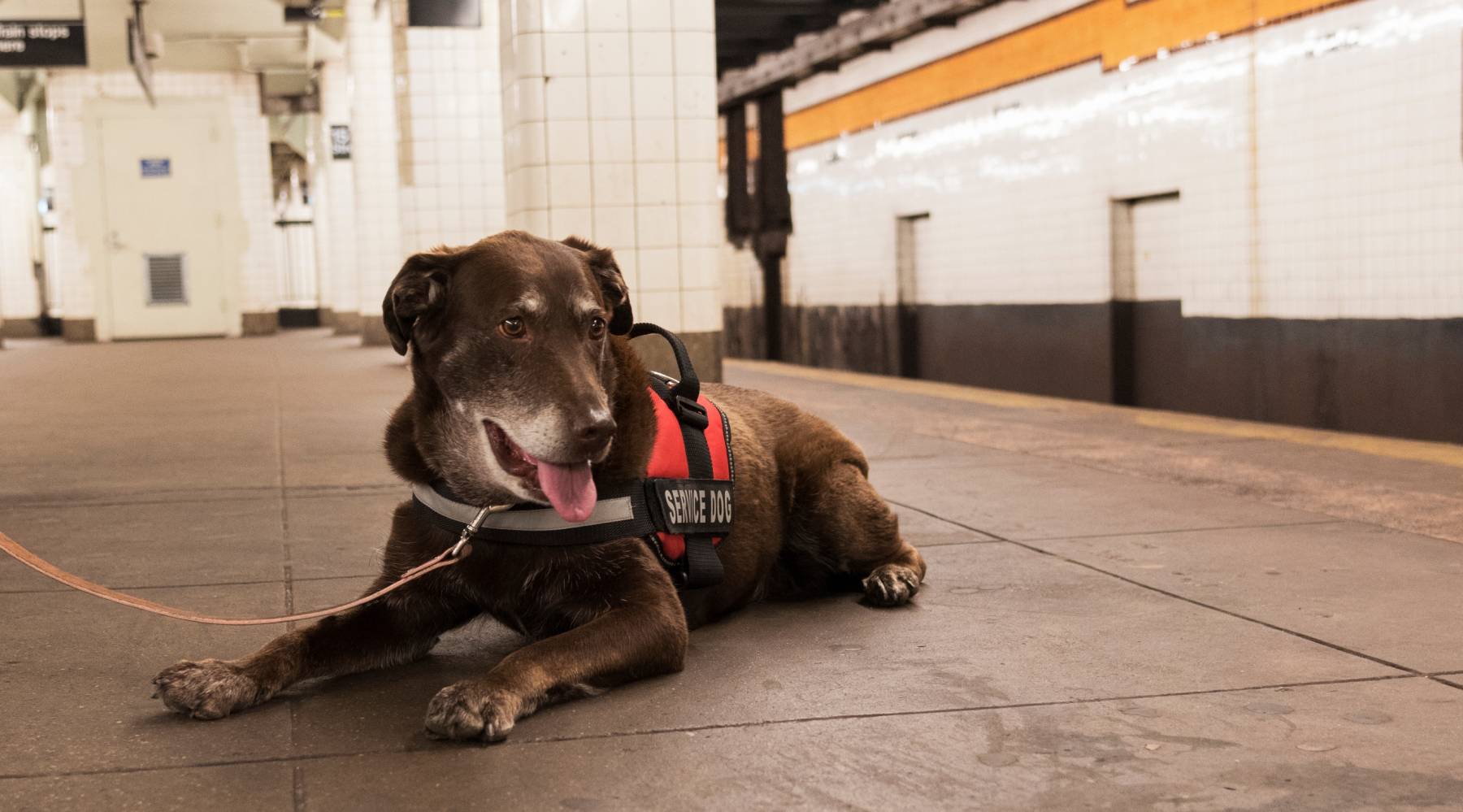
· By Edward Hale
Paws for Patriots: A Look at Veteran Service Dogs
Few return home from war completely unscathed. Though some may complete their tour of duty without sustaining physical injury, other ‘wounds’ are harder to see.
The psychological impact of combat leaves many veterans suffering in silence. The mental fallout can be agonizing and intense resulting in Post-Traumatic Stress Disorder (PTSD), anxiety and depression, to name a few.
Without intervention, vets are also at increased risk for suicide. Fortunately, service dogs are helping vets live more engaged, independent lives.
Where service dogs were once only available to those whose senses were impaired or whose mobility was compromised, the U.S. Department of Veterans Affairs has since expanded their interpretation to include those experiencing disruptions to their mental health.
See how service dogs are helping vets readjust to civilian life and how you can support this worthwhile effort.
What does a VA service dog do?
Service dogs go through 12-18 months of special training to support their veteran owners. They differ from other house pets because of their ability to assist with specific tasks that persons with impairments can’t perform all by themselves.
These may involve physical chores like item retrieval or opening a door, all the way up to emotional support like nightmare interruption. Essentially, it’s anything the person may require to live independently and safely.
Protection and emotional support are huge components of veteran service dogs. Their companionship also offers healing elements. However, it’s important to note that to qualify, dogs must be trained by a VA-approved third party or non-profit.
Some specific training elements might include:
- Distancing an animal from certain natural dog behaviors
- Training on tasks specific to their restricted handler
- Symptom recognition and intervention
The extensive training ensures the service animal will be allowed in public places that typically exclude pets.
VA Service Dogs and PTSD
Many PTSD service dogs are specifically trained to respond to anxiety alerts and nightmare cues. These might include small, otherwise unnoticeable responses like foot tapping, a clenched jaw or fist, and elevated breathing. If they recognize a symptom, the goal is to de-escalate the emotional response before it becomes a full-blown attack.
Overall, service dogs help facilitate a healing journey for vets. Their unconditional love and companionship, coupled with extensive training, is integral for keeping emotional responses manageable and helping with recovery efforts and eventual civilian reintegration.
Non-profit organization, This Able Veteran, outlines some of the ways PTSD service dogs assist veterans:
- Re-integration and socialization
- Recognition of early anxiety symptoms or emotional distress
- Nightmare interruption
- Increased confidence and sense of belonging within civilian society
- Alleviation of mobility issues, including bracing and stabilization
How you Can Help
Non-profits are responsible for raising and training qualified service dogs. That means the required nutritional needs, including sourcing of quality dog food, grooming and boarding, are supplied by the organizations themselves.
This makes fundraising critical to ensure the organizations that do such commendable work have the resources they need to stay afloat. Funding helps pay for additional administrative tasks like marketing, web efforts, and legal counsel, as well as general maintenance like cage cleaning and feedings.
Looking to make a contribution to PTSD service dog organizations? Some of our favorites include:
- Freedom Service Dogs
- This Able Veteran
- MADE in Texas Assistance Dogs
- K9s for Warriors
- Service Dogs for America
- Paws for Veterans
If a monetary donation isn’t possible, try volunteering your time and working with service dogs directly. Keep in mind that these dogs have a high need for consistency so as not to disrupt their strict training regimen. That means volunteer assignments could be lengthy.
This Veteran’s Day, take a moment to appreciate those who protect our freedom and the service dogs that help them heal.
